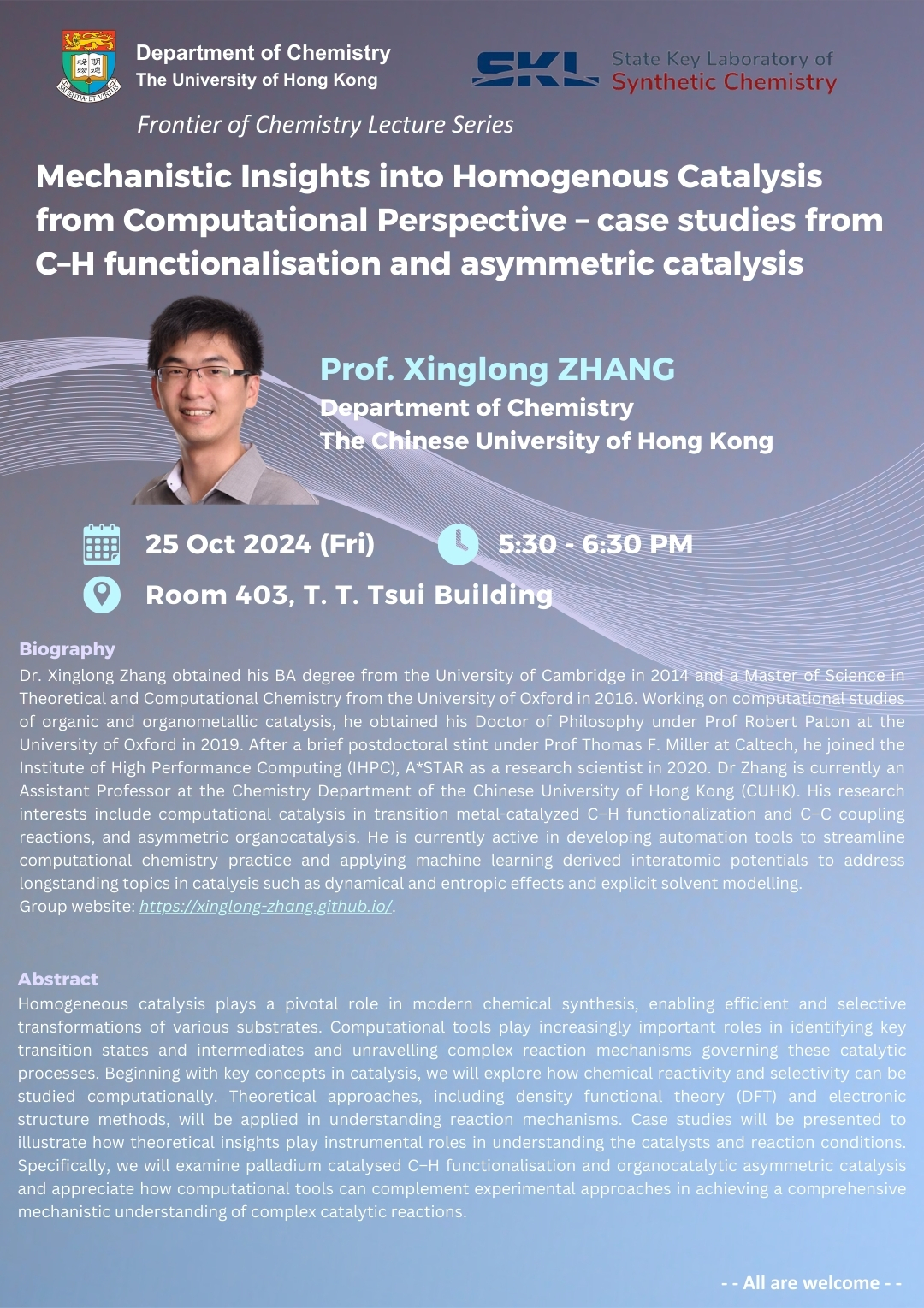| Date | 25 Oct 2024 |
| Time | 5:30 pm - 6:30 pm (HKT) |
| Venue | Room 403, T. T. Tsui Building |
| Speaker | Prof. Xinglong ZHANG |
| Institution | Department of Chemistry, The Chinese University of Hong Kong |

Title:
Mechanistic Insights into Homogenous Catalysis from Computational Perspective – case studies from C–H functionalisation and asymmetric catalysis
Schedule:
Date: 25th October, 2024 (Friday)
Time: 5:30 - 6:30 pm (HKT)
Venue: Room 403, T. T. Tsui Building
Speaker:
Prof. Xinglong ZHANG
Department of Chemistry
The Chinese University of Hong Kong
Biography:
Dr. Xinglong Zhang obtained his BA degree from the University of Cambridge in 2014 and a Master of Science in Theoretical and Computational Chemistry from the University of Oxford in 2016. Working on computational studies of organic and organometallic catalysis, he obtained his Doctor of Philosophy under Prof Robert Paton at the University of Oxford in 2019. After a brief postdoctoral stint under Prof Thomas F. Miller at Caltech, he joined the Institute of High Performance Computing (IHPC), A*STAR as a research scientist in 2020. Dr Zhang is currently an Assistant Professor at the Chemistry Department of the Chinese University of Hong Kong (CUHK). His research interests include computational catalysis in transition metal-catalyzed C–H functionalization and C–C coupling reactions, and asymmetric organocatalysis. He is currently active in developing automation tools to streamline computational chemistry practice and applying machine learning derived interatomic potentials to address longstanding topics in catalysis such as dynamical and entropic effects and explicit solvent modelling. Group website: https://xinglong-zhang.github.io/.
Abstract:
Homogeneous catalysis plays a pivotal role in modern chemical synthesis, enabling efficient and selective transformations of various substrates. Computational tools play increasingly important roles in identifying key transition states and intermediates and unravelling complex reaction mechanisms governing these catalytic processes. Beginning with key concepts in catalysis, we will explore how chemical reactivity and selectivity can be studied computationally. Theoretical approaches, including density functional theory (DFT) and electronic structure methods, will be applied in understanding reaction mechanisms. Case studies will be presented to illustrate how theoretical insights play instrumental roles in understanding the catalysts and reaction conditions. Specifically, we will examine palladium catalysed C–H functionalisation and organocatalytic asymmetric catalysis and appreciate how computational tools can complement experimental approaches in achieving a comprehensive mechanistic understanding of complex catalytic reactions.
*Co-organizing with the State Key Laboratory of Synthetic Chemistry
- - ALL ARE WELCOME --
